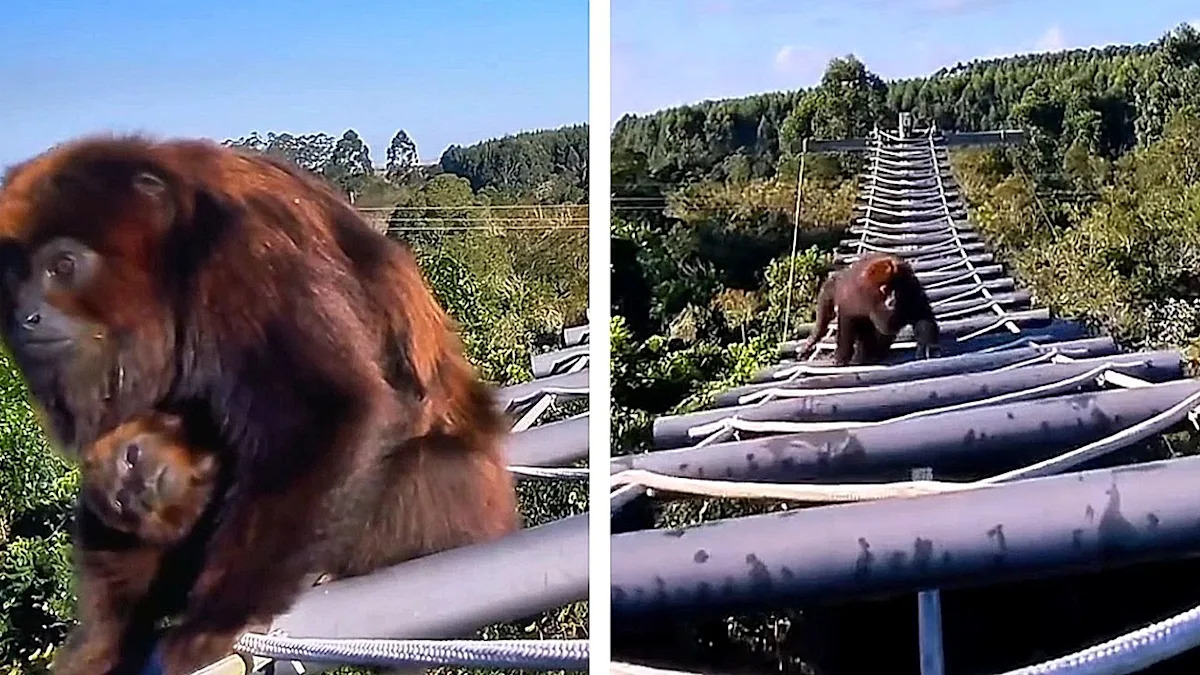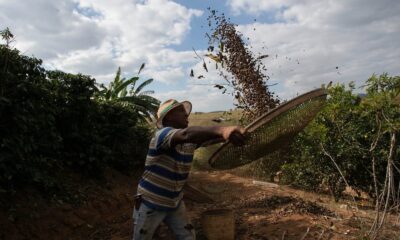Sports
Brazil’s ‘Monkey Bridges’ Save Wildlife from Road Hazards

A recent report confirmed the effectiveness of overhead rope ladders, commonly referred to as ‘monkey bridges,’ installed across the rainforests of Brazil. These innovative structures, which were constructed in October 2022, have dramatically reduced wildlife fatalities on roads. Thanks to these installations, thousands of monkeys, hedgehogs, and opossums can now traverse busy highways without the threat of traffic accidents.
The introduction of the monkey bridges was a response to increasing concerns over wildlife road deaths. Before their implementation, reports of animal-vehicle collisions were alarmingly high. However, since the bridges became operational, incidents involving wildlife have plummeted to near-zero levels.
August 12 marked a significant milestone as researchers presented data illustrating the positive impact of these bridges. The findings revealed that the structures not only facilitate safe crossings for animals but also contribute to road safety for drivers. This dual benefit underscores the importance of integrating wildlife conservation efforts into urban planning and infrastructure development.
The construction of the monkey bridges reflects a growing trend in environmental awareness and wildlife preservation. Local communities and environmental organizations have rallied together to support these initiatives, recognizing that protecting biodiversity is crucial for maintaining healthy ecosystems. The availability of these crossings encourages animals to remain in their natural habitats rather than venturing into dangerous roadways.
As the project continues to gain momentum, further studies are planned to assess the long-term benefits of the monkey bridges. Researchers aim to expand the scope of the project, potentially incorporating similar structures in other regions facing wildlife road safety issues. This initiative highlights a proactive approach to conservation, merging ecological responsibility with practical solutions.
The success of Brazil’s monkey bridges serves as an inspiring model for other countries grappling with similar challenges. By prioritizing the safe passage of wildlife, there is potential for not only saving animal lives but also enhancing the overall safety of roadways. As more regions adopt similar measures, the hope is to create a more harmonious coexistence between wildlife and human infrastructure.
In conclusion, Brazil’s innovative approach to wildlife conservation through the installation of monkey bridges demonstrates the effectiveness of such initiatives. The reduction in wildlife road deaths is a testament to the positive outcomes that can arise from thoughtful planning and community involvement in conservation efforts.
-

 Politics4 weeks ago
Politics4 weeks agoSecwepemc First Nation Seeks Aboriginal Title Over Kamloops Area
-

 World5 months ago
World5 months agoScientists Unearth Ancient Antarctic Ice to Unlock Climate Secrets
-

 Entertainment5 months ago
Entertainment5 months agoTrump and McCormick to Announce $70 Billion Energy Investments
-

 Science5 months ago
Science5 months agoFour Astronauts Return to Earth After International Space Station Mission
-

 Lifestyle5 months ago
Lifestyle5 months agoTransLink Launches Food Truck Program to Boost Revenue in Vancouver
-

 Technology3 months ago
Technology3 months agoApple Notes Enhances Functionality with Markdown Support in macOS 26
-

 Lifestyle3 months ago
Lifestyle3 months agoManitoba’s Burger Champion Shines Again Amid Dining Innovations
-

 Top Stories2 months ago
Top Stories2 months agoUrgent Update: Fatal Crash on Highway 99 Claims Life of Pitt Meadows Man
-

 Politics4 months ago
Politics4 months agoUkrainian Tennis Star Elina Svitolina Faces Death Threats Online
-

 Sports5 months ago
Sports5 months agoSearch Underway for Missing Hunter Amid Hokkaido Bear Emergency
-

 Politics5 months ago
Politics5 months agoCarney Engages First Nations Leaders at Development Law Summit
-

 Technology5 months ago
Technology5 months agoFrosthaven Launches Early Access on July 31, 2025





















